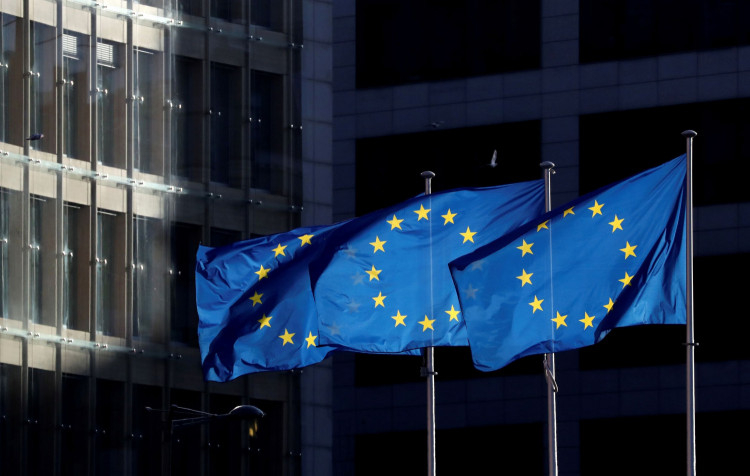The European Union and France have announced significant investments in artificial intelligence, aiming to position the continent as a serious competitor against the U.S. and China. At the AI Action Summit in Paris, European Commission President Ursula von der Leyen pledged €200 billion ($206 billion) in funding, reinforcing the bloc's ambition to become a global AI leader.
The new InvestAI initiative includes €50 billion ($51 billion) in fresh EU funding, supplementing €150 billion ($154 billion) from private investors under the European AI Champions Initiative. The financing will be directed toward building AI gigafactories, enhancing research, and supporting European AI startups.
"We want Europe to be one of the leading AI continents, and this means embracing a way of life where AI is everywhere," von der Leyen said. "Too often I hear that Europe is late to the race where the United States or China have already gotten ahead. I disagree, because the AI race is far from being over."
The announcement follows French President Emmanuel Macron's commitment to invest €109 billion ($112 billion) in France's AI sector, further reinforcing the country's ambition to be a European AI leader. Macron declared that France is "back in the AI race", underscoring the shift in Europe's approach from regulation-heavy oversight to active participation in AI innovation.
Shifting Perceptions on Europe's AI Landscape
Europe has long been viewed as a region that overregulates technology at the cost of innovation. The EU AI Act, enacted last year, established the world's first major law governing AI, but it has faced criticism from companies and member states like France for potentially stifling AI development.
Despite these regulatory concerns, some tech leaders see a shift in how Europe is approaching AI. Victor Riparbelli, CEO of AI video company Synthesia, said the momentum is changing: "As a European region, at least, we are starting to see global leaders emerge, and that's the thing we really need."
Chris Lehane, chief global affairs officer at OpenAI, noted that there is growing tension between EU-level regulators and individual countries like France, Germany, and the UK, which are pushing for more pro-innovation policies.
"There's almost this fork in the road, maybe even a tension right now between a Europe at the EU level that is looking at a fairly significant, heavier regulatory approach, and then some of the countries ... looking to maybe go in a little bit of a different direction that actually wants to embrace the innovation," Lehane told CNBC.
U.S. and China Maintain Lead in AI Dominance
While Europe ramps up investment, the U.S. and China continue to dominate the global AI landscape. The U.S. recently announced a $500 billion AI infrastructure plan, dubbed 'Stargate', aimed at advancing AI data centers and research. Meanwhile, China's DeepSeek AI model has demonstrated capabilities that rival OpenAI's GPT technology, raising concerns about China's ability to challenge U.S. leadership.
Europe's push for AI leadership is not without its challenges. Some industry figures remain skeptical about the region's ability to compete effectively. Reid Hoffman, co-founder of LinkedIn and investor at Greylock, used a sports analogy to describe the dilemma:
"One of the metaphors I sometimes use-you look at AI as a World Cup football match between the U.S. and China. And if all Europe is trying to do is be the referee, there's two problems. One, they never win, and two, no one really likes the referee."
Regulation vs. Innovation: A Balancing Act
The AI Act, which established legal frameworks around AI safety and accountability, has sparked a debate over Europe's role in global AI development. Some leaders argue that excessive regulation could slow progress, while others contend that striking a balance between governance and innovation is key to long-term competitiveness.
Christel Heydemann, CEO of telecommunications firm Orange, echoed these concerns, stating: "There is too much regulation in Europe. That's slowing us down, especially when you think about the potential of the European market." However, she remained optimistic, adding, "The race is not over yet."
Global Reactions and Future Outlook
The U.S. and the UK notably declined to sign the Paris AI summit's declaration, which commits nations to ensuring AI is 'open, inclusive, transparent, ethical, safe, secure, and trustworthy.' U.S. Vice President JD Vance criticized the EU's AI regulatory stance, calling it "authoritarian censorship" and warning that "excessive regulation of the AI sector could kill a transformative industry."
Meanwhile, European leaders remain steadfast in their vision. "AI will improve our healthcare, spur our research and innovation, and boost our competitiveness," von der Leyen stated. "We want AI to be a force for good and for growth."




